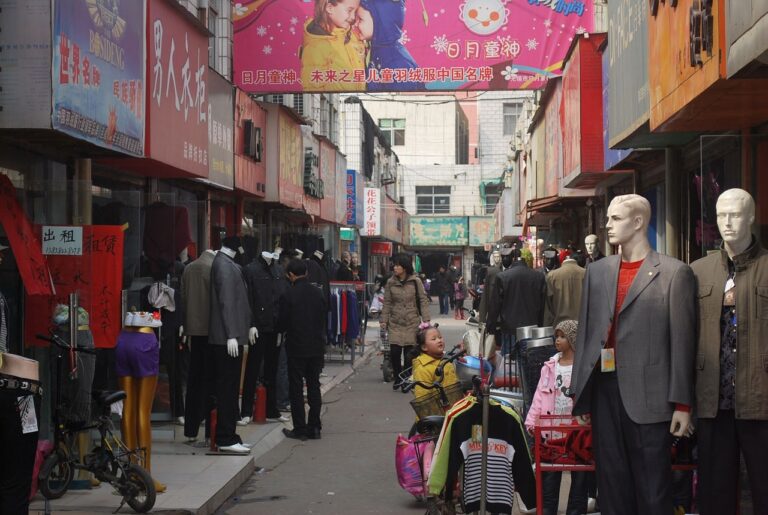The Psychology of Seasonal Sales: How Holidays Influence Shopping Behavior
Seasonal sales are a common occurrence in the retail world, with businesses capitalizing on holidays and special events to drive consumer spending. But have you ever stopped to consider the psychology behind seasonal sales and how they influence shopping behavior?
The Impact of Holidays on Shopping Behavior
Holidays play a significant role in shaping consumer behavior and purchasing decisions. Whether it’s Valentine’s Day, Christmas, Black Friday, or Cyber Monday, holidays create a sense of urgency and excitement that motivates people to shop. The holiday season is a time when consumers are more likely to splurge on gifts for themselves and others, leading to a surge in retail sales.
The Role of Emotions in Holiday Shopping
Emotions play a crucial role in influencing shopping behavior, especially during the holiday season. The joy of giving and receiving gifts, the excitement of finding the perfect present, and the sense of satisfaction from a good deal all contribute to a positive emotional experience that motivates consumers to shop. Retailers leverage these emotions through targeted marketing campaigns and promotions to drive sales.
The Scarcity Effect and Seasonal Sales
The scarcity effect is a psychological phenomenon that describes how people place a higher value on items that are perceived as scarce or limited. Retailers use this concept to create a sense of urgency and FOMO (fear of missing out) during seasonal sales. Limited-time offers, exclusive deals, and one-time discounts all tap into the scarcity effect to drive sales and encourage impulse purchases.
The Role of Social Proof in Seasonal Sales
Social proof is another psychological principle that influences shopping behavior, particularly during the holiday season. People are more likely to make a purchase if they see others doing the same, as it validates their decision and reduces the risk of making a wrong choice. Retailers leverage social proof through customer reviews, testimonials, and influencer endorsements to build trust and credibility with consumers.
The Power of Personalization in Seasonal Sales
Personalization is a key strategy for retailers looking to maximize seasonal sales. By tailoring promotions, offers, and recommendations to individual preferences and behavior, retailers can create a more personalized shopping experience that resonates with consumers. Personalization enhances customer loyalty, increases repeat purchases, and drives overall sales growth during the holiday season.
The Influence of Discounting on Seasonal Sales
Discounting is a common tactic used by retailers to attract customers during seasonal sales. While discounts can be an effective way to drive sales and increase foot traffic, excessive discounting can erode brand value and profitability. Smart discounting strategies, such as tiered discounts, limited-time offers, and bundle deals, can help retailers maintain margins while driving sales during the holiday season.
The Rise of Online Shopping in Seasonal Sales
The rise of e-commerce has revolutionized the way consumers shop during the holiday season. Online retailers offer convenience, accessibility, and a wide selection of products that appeal to tech-savvy shoppers. The convenience of shopping from home, the ability to compare prices and reviews, and the availability of exclusive online deals have all contributed to the growth of online shopping during seasonal sales.
Conclusion
Seasonal sales are a strategic opportunity for retailers to capitalize on holidays and special events to drive consumer spending. By understanding the psychology behind seasonal sales and how holidays influence shopping behavior, retailers can create targeted marketing campaigns, personalized promotions, and engaging shopping experiences that resonate with consumers and drive sales growth. The emotional appeal of holidays, the scarcity effect, social proof, personalization, discounting strategies, and the rise of online shopping all play a role in shaping consumer behavior during seasonal sales. By leveraging these psychological principles effectively, retailers can create a competitive advantage and maximize sales during the holiday season.
FAQs
Q: How do holidays influence shopping behavior?
A: Holidays create a sense of urgency, excitement, and joy that motivates consumers to shop for gifts and treats for themselves and others.
Q: What role do emotions play in holiday shopping?
A: Emotions such as joy, excitement, and satisfaction play a crucial role in influencing shopping behavior during the holiday season.
Q: How do retailers leverage the scarcity effect during seasonal sales?
A: Retailers create a sense of urgency and FOMO (fear of missing out) through limited-time offers, exclusive deals, and one-time discounts to drive sales during seasonal sales.
Q: How does social proof influence consumer behavior during seasonal sales?
A: Social proof, such as customer reviews, testimonials, and influencer endorsements, helps build trust and credibility with consumers, leading to increased sales during seasonal sales.
Q: What is the significance of personalization in seasonal sales?
A: Personalization enhances customer loyalty, increases repeat purchases, and drives overall sales growth during the holiday season by tailoring promotions, offers, and recommendations to individual preferences and behavior.
Q: How has the rise of online shopping impacted seasonal sales?
A: The rise of e-commerce has revolutionized the way consumers shop during the holiday season, offering convenience, accessibility, and a wide product selection that appeals to tech-savvy shoppers.







